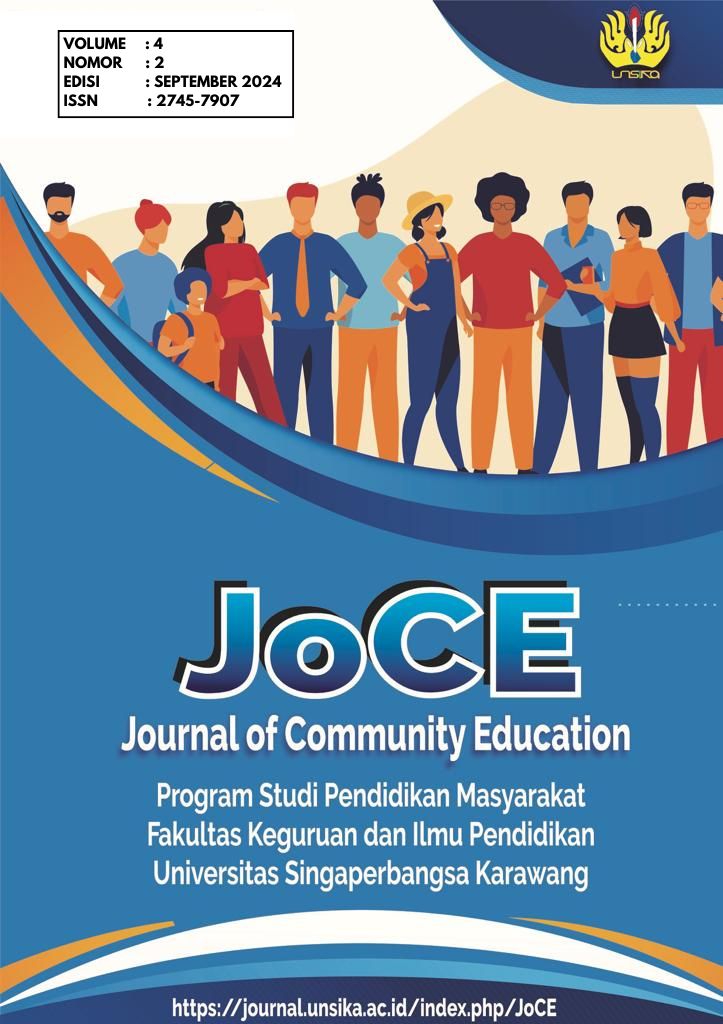EVALUASI PROGRAM BANK SAMPAH ASSOPIAH DESA SUKAMAJU KECAMATAN CIHAURBEUTI KABUPATEN CIAMIS
Abstrak
Sukamaju Hamlet is one of the areas that has deficiencies in terms of waste management. The establishment of a waste bank in Sukamaju Hamlet is an effort to reduce, manage and process waste effectively, so that the community can utilize and recycle waste into more economic value. The aim of this research is to determine the evaluation process of the Sukamaju Village Assoiah Waste Bank program. This research uses qualitative descriptive research. The data collection techniques used are observation, interviews and documentation. The research results in this study show that the waste bank program in Sukamaju Hamlet is in accordance with community needs and provides a solution to community concerns regarding waste problems. The evaluation process in this research was carried out through a formative and summative evaluation model approach. The formative evaluation showed that the participation of the Sukamaju Hamlet community increased after the implementation of the Assopiah Waste Bank program, increased community knowledge regarding waste management and the provision of facilities and infrastructure to ensure the smoothness and effectiveness of the Assopiah Waste Bank program. The summative evaluation shows that waste generation in Sukamaju Hamlet has decreased, the community's environmental awareness has increased, and the economic income of the Sukamaju Hamlet community has increased through the Assopiah Waste Bank.
Unduhan
Referensi
Ahmad, I. (2022). Evaluasi Pelaksanaan Kegiatan Bank Sampah di Provinsi DKI Jakarta. Jurnal Ilmu Lingkungan, 20 (2), 425.
Ambiyar. (2018). Evaluasi Formatif dalam Pembelajaran Sains. Padang: UNP Press.
Astuti, H., Meidiana, C., & Wijayanti, W. (2020). Evaluasi Pelaksanaan Bank Sampah di Kecamatan Junrejo Kota Batu. Planning for Urban Region and Environment Journal (PURE), 9(2), 29-38.
Devi, M., Hidayanthi, R., & Fitria, Y. (2022). Model-Model Evaluasi Pendidikan dan Model Sepuluh Langkah dalam Penilaian. Jurnal Basicedu, 6(1), 675-683.
Karwati, L., Hamdan, A., & Fitriani, U. (2021). Penerapan Model Bank Sampah dalam Meningkatkan Kebersihan Lingkungan. VISI: Jurnal Ilmiah PTK PNF, 16(2), 61-71. doi:http://doi.org/10.21009/JIV.1602.6
Mahfud, M. U. (2022). Manajemen Bank Sampah Krissan dalam Pemberdayaan Ekonomi Masyarakat Karang Tengah, Tanggerang. Madani Syariah, 3-4.
Nispawijaya, T., & Nasdian, F. (2020). Hubungan Tingkat Partisipasi dalam Program Bank Sampah Terhadap Perubahan Perilaku Pengelolaan Sampah (Kasus: Bank Sampah Dandelion Desa Sukawening, Kecamatan Ciherang, Kabupaten Bogor, Jawa Barat). Jurnal Sains Komunikasi dan Pengembangan Masyarakat (JSKPM), 4(5), 593-609.
Perdana, M. C., Hamim, A., Rismayanti, S., & Hamdan, A. (2022). Evaluasi Program Pemberdayaan Masyarakat Melalui Pengelolaan Bank Sampah di Kota Tasikmalaya. Lifelong Education Journal, 2(1), 26-32. doi:https://doi.org/10.59935/lej.v2i1.55
Purwanti, E. (2007). Sampah Jadi Uang. Klaten: Saka Mitra Kompetensi.
Saputro, Y., Kismartini, & Syafrudin. (2016). Pengelolaan Sampah Berbasis Masyarakat Melalui Bank Sampah. Indonesian Journal of Conservation, 4(1).
Sukmadinata, N. S. (2009). Metode Penelitian Pendidikan. Bandung: Remaja Rosda Karya.
Syarifuddin, M. &. (2018). Model-Model Evaluasi Pendidikan. Mitra Ash-Shibyan: Jurnal Penidikan & Konseling, 45-47.
Wahyuningsih, M. (2021). Dampak Pengetahuan Akuntansi, Pengalaman Usaha, Kebijakan Pemerintah dan Strategi Pelaku Usaha Mikro Kecil dan Menengah (UMKM) dalam Meningkatkan Perekonomian Selama Pandemi Covid-19 (Studi Kasus Pada UMKM Mitra Indomaret di Kecamatan Tanah Sareal, Kota B. Skripsi. Sekolah Tinggi Ilmu Ekonomi Indonesia. Diambil kembali dari http://repository.stei.ac.id/5292/
##submission.downloads##
Diterbitkan
Cara Mengutip
Terbitan
Bagian
Lisensi
Hak Cipta (c) 2024 JoCE (Journal of Community Education)

Artikel ini berlisensiCreative Commons Attribution-ShareAlike 4.0 International License.




